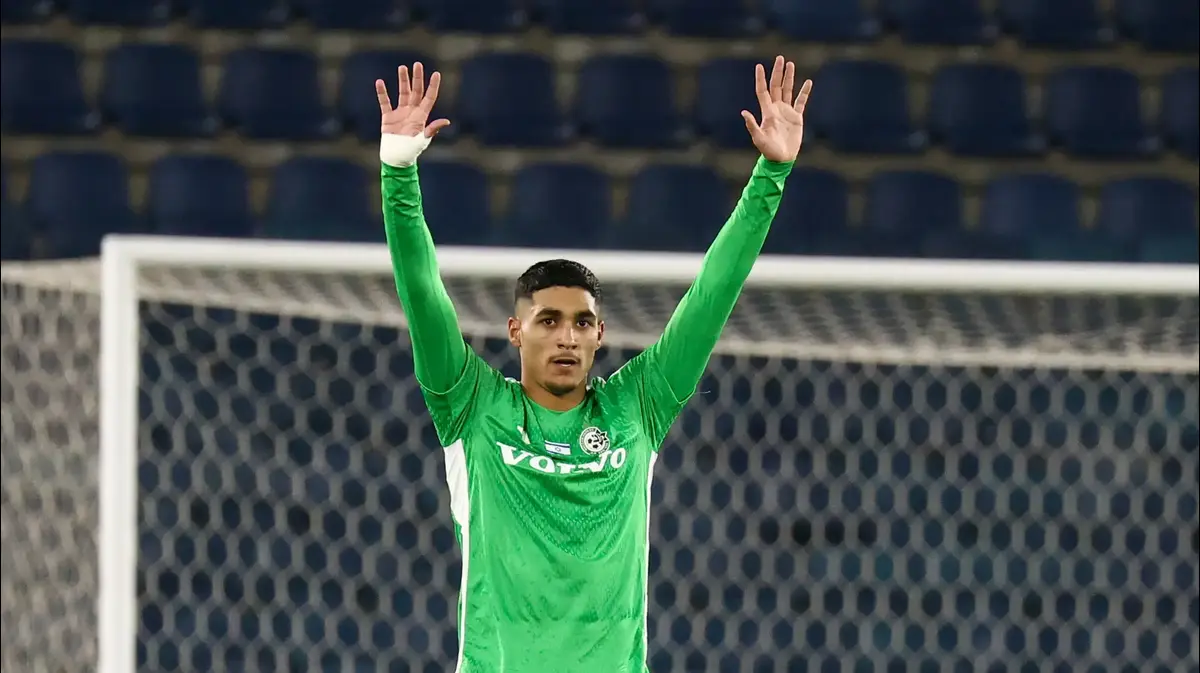Enlarge image
Inoki flies, Ali is surprised
Photo: KYODO / REUTERS
What a spectacle!
But what a prank too.
On June 26, 1976, millions on TV screens are watching the greatest boxer of all time as he tries to defend himself against an opponent who is crawling on the floor in front of him.
An opponent who keeps kicking him in the shin from there.
A bizarre spectacle, this fight.
In fact, you shouldn't call it a fight at all.
The PR strategists call this fight between Muhammad Ali and Antonio Inoki the "fight of the century", the "war of the worlds", but it is a circus act.
The greatest boxer of his time and the greatest wrestler of his time in the ring together, both basically making a fool of themselves.
The promoters wanted it that way.
Although Ali was at the height of his fame with his fights of the century against Joe Frazier and George Foreman, money was still a driving force that he and his management could not resist.
He had been asked beforehand why he would do something like this, stepping into the ring against a wrestler.
"Six million dollars" was his honest answer.
Ali struck only six times
And so the following unfolded before the eyes of the world public: Inoki had worked out the tactic of conducting the fight from the ground, completely in accordance with the rules of his sport.
He kept kicking the champion from below, Ali didn't know how to answer: he only got six punches in 15 rounds.
The crowd, who had paid astronomical ticket prices to see the fight, became increasingly irritated and began booing and whistling.
I have no idea what they had in mind: a helpless world champion boxer doing nothing but trying to dodge a kicking opponent who's down, anyway.
In the end the fight was classified as a draw, which fitted into the picture.
Inoki, who died on Saturday night at the age of 79, nevertheless became a figure of world sport through this farce in Tokyo's Budokan Arena.
Which is extremely absurd insofar as he was already one of the superstars in his sport.
Muhammad Ali didn't need to lend himself to such a fair act.
But neither does Antonio Inoki.
Started as an athlete
Because the then 33-year-old was already a legend in his homeland, the most famous figure that wrestling had produced in Japan.
Disciple of the iconic Rikidozan, the father of wrestling in the Far East.
Inoki, who emigrated from Japan to Brazil with his family as a child, had only started out as an athlete, but he made it quite far as a shot putter and discus thrower.
But his real revelation was wrestling, which at that time was still called Catchen in Germany.
Rikidozan brought him back to Japan, took him under his wing, and by the early 1960s Inoki was rising to stardom.
In a Japanese society that was only beginning to open up to the West at the time.
The yakuza, the Japanese mafia, was a significant factor.
Inoki's trainer was involved, after a stabbing with a yakuza he died in 1963 as a result of the injury.
The knife blade had been wetted with urine, the wound had become infected - with fatal consequences for Rikidozan.
Ring Name "Burning Fighting Spirit"
After his death, Inoki organized himself, equipped with the ring name »Burning Fighting Spirit«, and in the early 1970s he founded his own wrestling organization.
He was already as popular as Hulk Hogan in the USA.
For the managers who worked out the fight against Ali, it was therefore clear: If there is an opponent for The Greatest, it has to be Antonio Inoki.
Right from the start, however, the promoters of the boxing star had in mind a thoroughly choreographed show, in the spirit of wrestling, where there is more appearance than reality in the ring.
Ironically, the Japanese wrestling star didn't want to take part.
For Inoki, the duel with Ali was a sporting challenge, he prepared himself seriously - including the big tones in advance.
He hands Ali a crutch.
He may break Ali's arm if his opponent doesn't take the fight seriously, he announced.
That had made the Ali camp nervous after all.
A group of the Black Muslims, always around Ali in those years, threaten to kill Inoki if he causes sustained harm to the champion.
Ali mocked him as "Pelican"
The boxing champ is only marginally impressed by the declarations of war, but when it comes to making jokes he is unmatched: "There will be no new Pearl Harbour," he prophesies to the Japanese public, he mocks his opponent because of his protruding chin as "pelican" and wrestling is basically nothing other than »karate at a distance, so worth nothing«.
15 laps later he will think differently about it.
Although Ali pocketed the million dollar fee, he also suffered a painful wound on his shinbone from Inoki's kicks, which repeatedly inflamed and disabled him for years.
The famous speed with which Ali unnerved his opponents will never be regained afterwards.
Inoki continued his wrestling career until 1998, after which he turned to politics.
He moves into the Japanese upper house several times with different parties and even founds his own party: the "Sports and Peace Party".
Again and again he campaigns for contacts in the frowned upon North Korea, he had already performed there as an active player: 190,000 spectators in North Korea are said to have witnessed his fight against the US wrestler Ric Flair.
In recent years, Inoki was already marked by a serious illness, he could only move around in a wheelchair.
He succumbed to the effects of the disease on Saturday.
The burning fighting spirit is extinguished.









